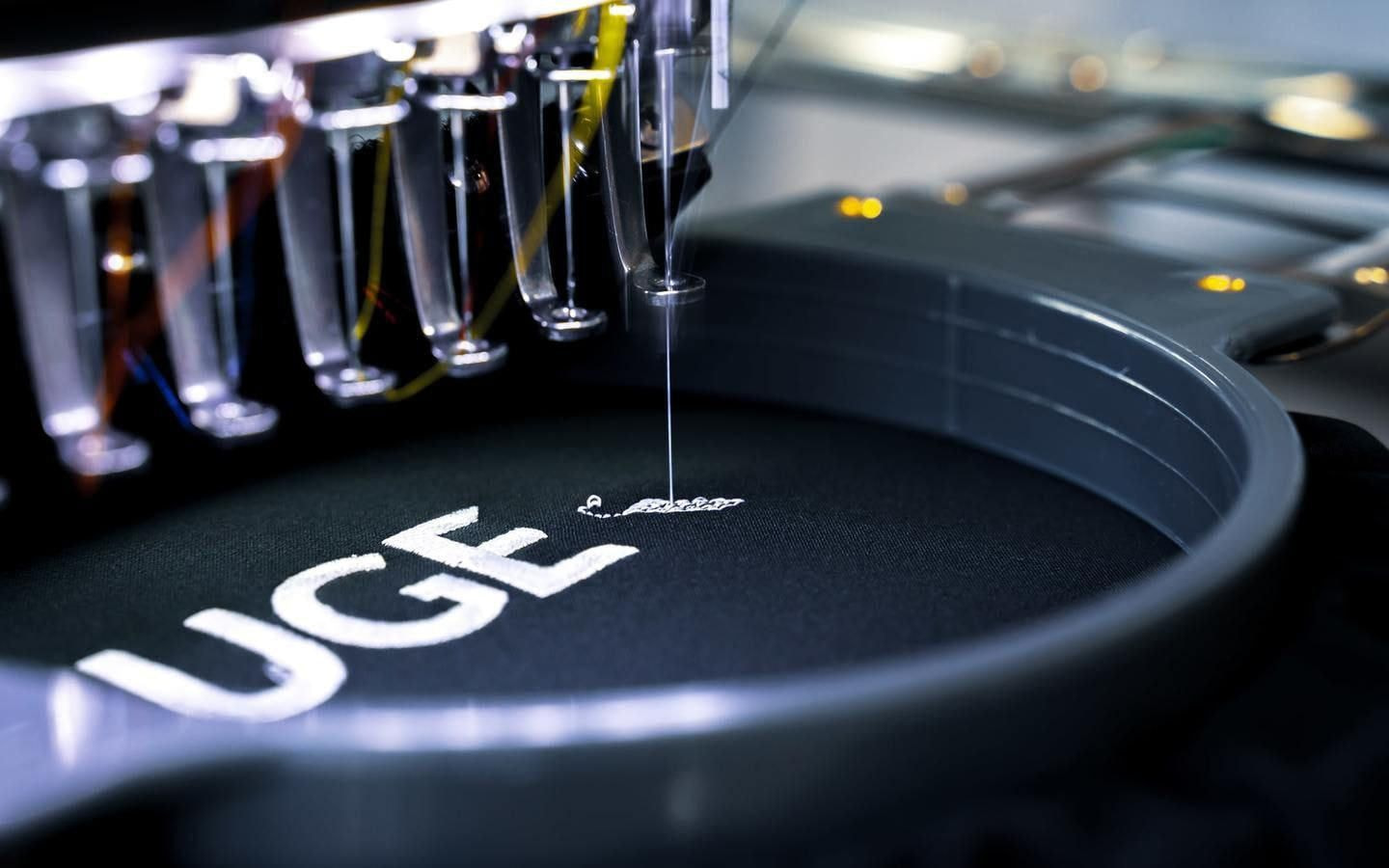Table of contents
If you’ve ever wondered what embroidery is or how to turn it into a creative outlet or successful business, you’re in the right place.
In this article, you’ll learn about the main embroidery techniques, discover stitches that have stood the test of time, and get practical steps to start selling embroidered products with Printful.
Key takeaways
-
Embroidery is the art of stitching designs by hand or machine onto fabric or other materials.
-
Print‑on‑demand lets you sell embroidered products without a ton of equipment and upfront investment, so you can focus on expressing your creativity rather than managing inventory.
-
Hand embroidery is done using colourful thread or yarn, a needle and thread, and foundational stitches like running stitch, blanket stitch, and cross stitch.
-
Machine embroidery uses computerized sewing machines to scale intricate designs quickly, making it perfect for golf shirts, hats, and dress shirts.
What is embroidery?
Embroidery is a handicraft using a needle and thread to decorate fabric. It usually involves stitching patterns with thread, yarn, beads, sequins, or pearls, adding texture, color, and a bit of pizzazz to plain surfaces.
You likely see it every day, like a logo stitched onto a gym bag or a monogram on a hotel towel. Embroidery has lasted for thousands of years because it’s both beautiful and durable. While tools and techniques have evolved, the basic stitches remain the same.


How does embroidery work?
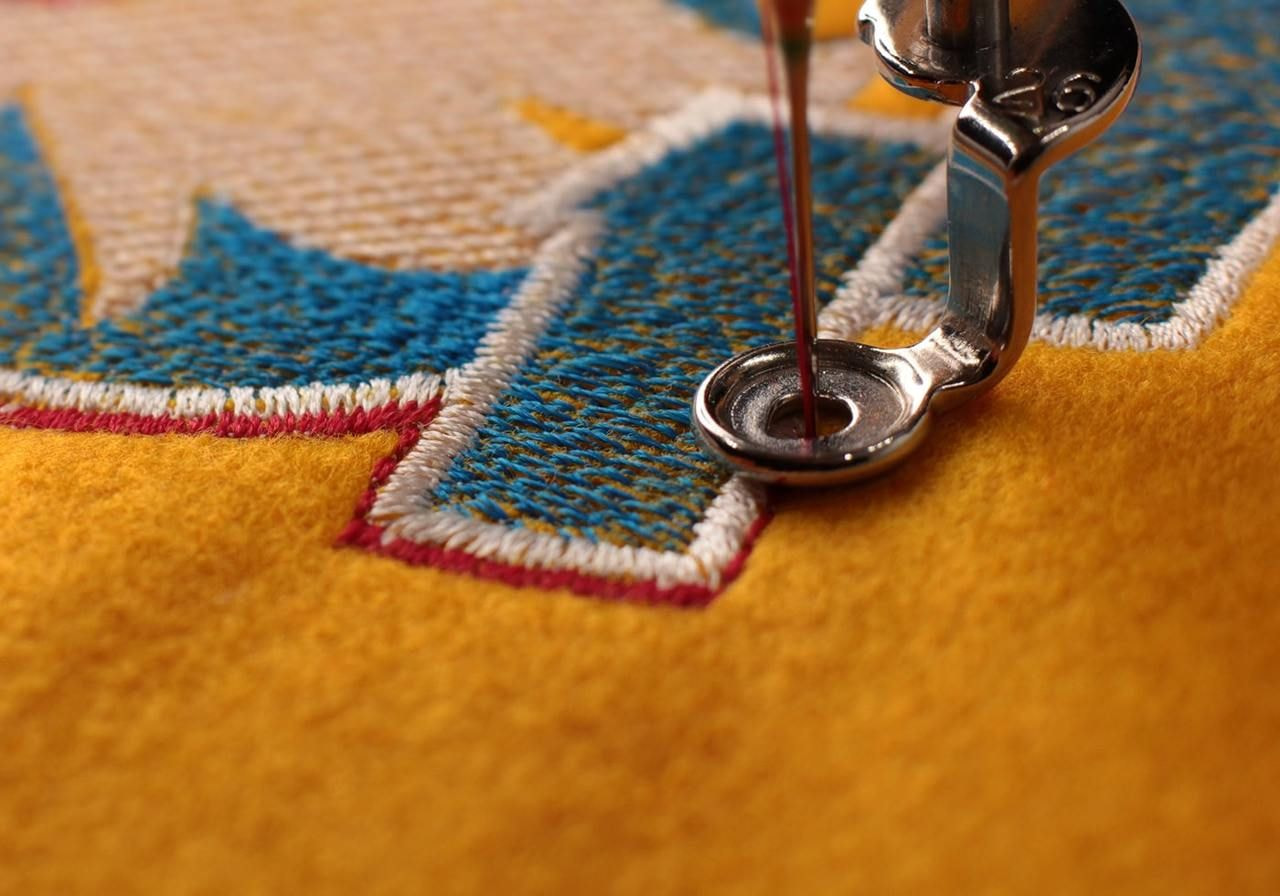
Whether you’re doing hand embroidery with classic stitches like the cross stitch or satin stitch, or you opt for a machine, the embroidery process always comes down to three fundamental steps.
1. Prepare the artwork
Digitise your design or transfer it onto the fabric with a stencil so it’s clear where each stitch should go.
2. Stabilise and hoop
Clamp the fabric tightly in a hoop or frame. Add backing so stitches remain crisp on stretchy clothing. Choose cut-away backing for knits and tear-away for wovens – the right stabiliser stops puckering before it starts.
3. Stitch and finish
Apply thread either by hand or machine, trim tails, and press so your intricate designs pop. A quick steam press relaxes the fibres, letting colors bloom and giving the piece that polished, ready-to-wear look.
What is embroidery used for?
This versatile decoration method is often used to add a special touch to tons of different items.
Stylish apparel
Embroidery turns basics such as dress shirts, tote bags, golf shirts, denim jackets, even beanies and hats, into conversation pieces.
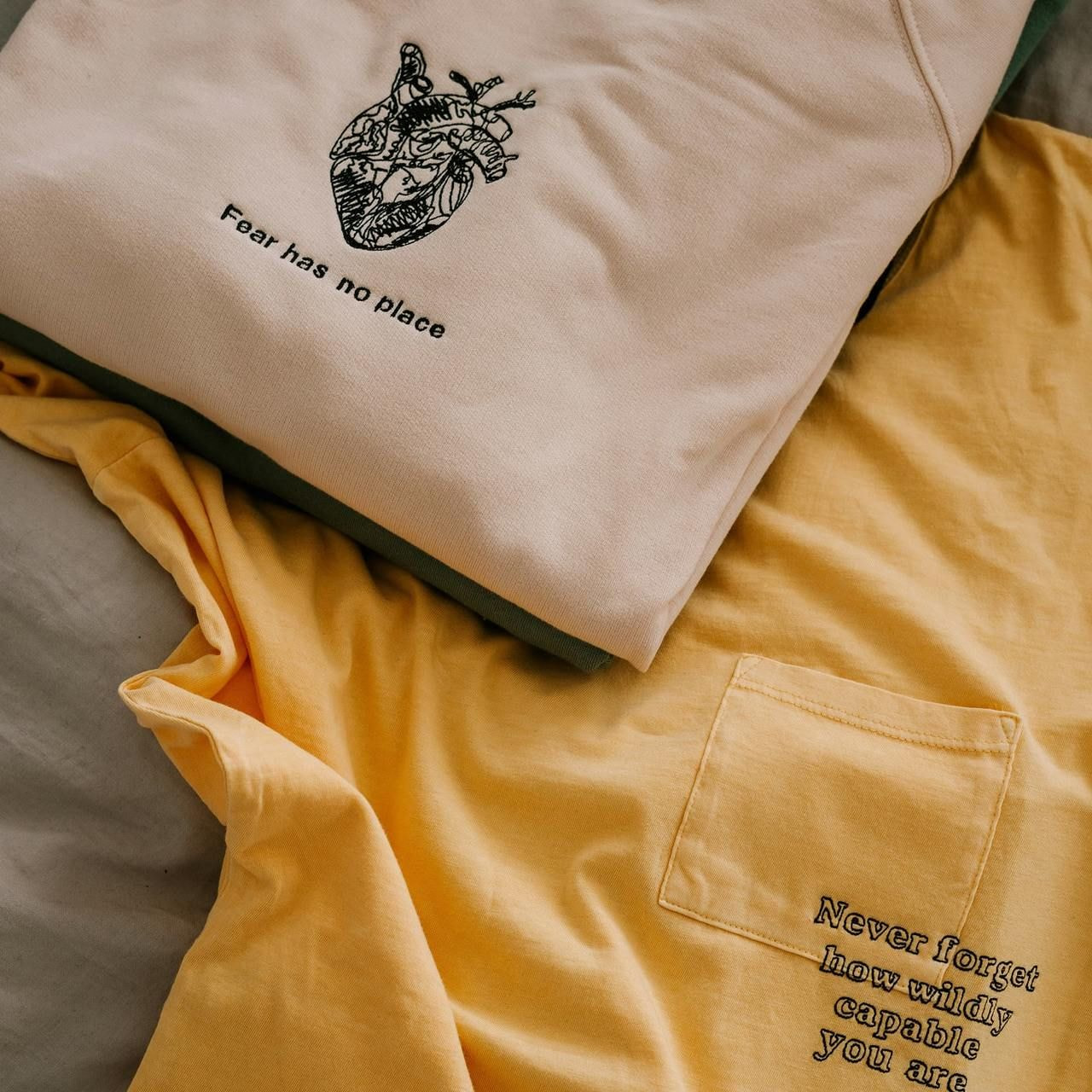
A satin‑stitch monogram or bold back‑panel design brings a rich color and a raised, textured finish that print alone can’t match, while a neatly stitched logo signals craftsmanship for cafés, sports teams, and corporate swag kits.
Decor and gifts
From cushion covers and lampshades to personalised towels, baby onesies, and wedding handkerchiefs, stitched motifs create a handmade feel to these special items.
Gallery-worthy textile art
Artists use embroidery as brushstrokes, building 3D landscapes out of thread, beads, gems, and other objects.
Explore our full catalog of embroidery-ready products to see where your designs can shine.
Types of embroidery
1. Hand embroidery
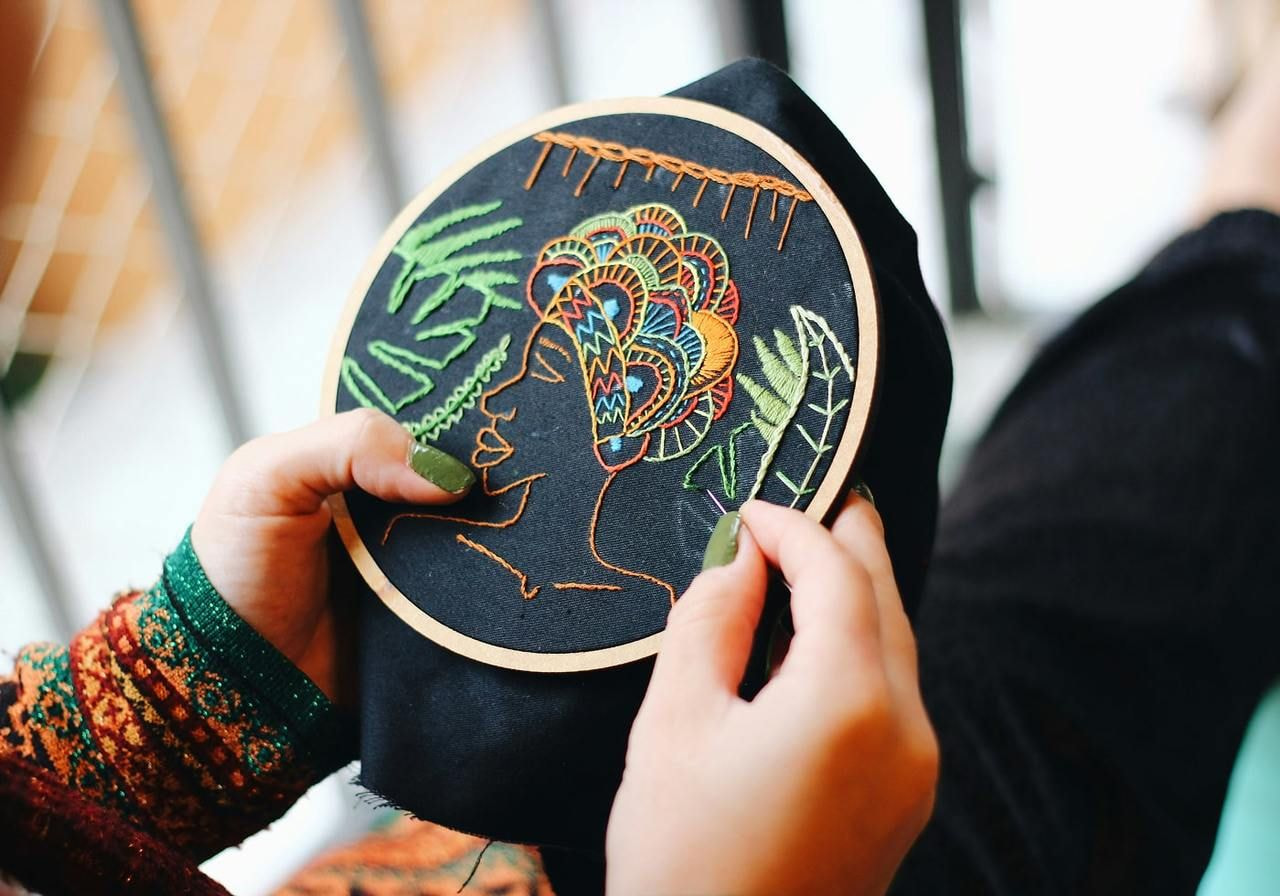
The classic, original embroidery method is done by hand. The core stitches include running stitch, back stitch, blanket stitch, chain stitch, satin stitch, and cross stitch. These basic techniques date back to medieval times and are still often the go-to for those who prefer to embroider as a relaxing hobby.
2. Machine embroidery
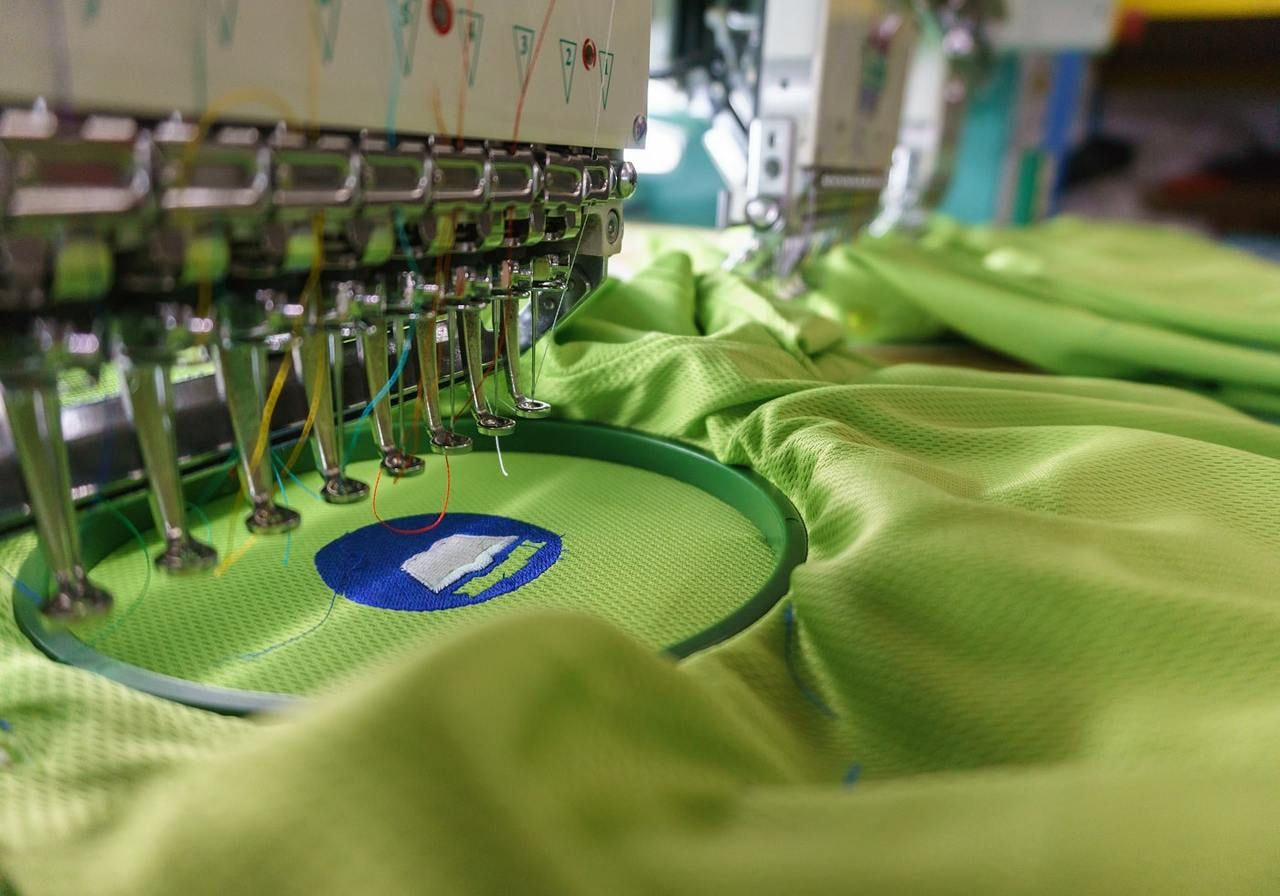
Computerized sewing machines equipped with up to 15 needles rocket through complex designs that would take days to cross-stitch or chain stitch by hand. Printful’s rigs can stitch 180+ products, from hats and cotton canvas totes to jackets, making it an incredible, time-saving option for embroidery businesses.
Popular products to embroider from Printful include:
-
T-shirts and golf shirts – Timeless pieces worthy of premium flair.
-
Classic dad cap – A constantly trendy hat that sells year-round.
-
Eco tote bag – Functional canvas for artistic expression and sustainability.
Check out our full list of embroidery products here.
Valuable read: Check out our roundup of the best t-shirts for embroidery to see which materials and fabric weights give the best results.
3. Specialized and traditional embroidery styles
Embroidery isn’t just a handicraft – it’s often a cultural activity used to celebrate one’s heritage.
-
Kutch embroidery (Gujarat, India) – A technique featuring mirrors, silk chain stitch, and bright palettes. Its swirling motifs show how a simple chain stitch can transform plain cloth.
-
Hardanger (Norway) – Uses counted thread and drawn thread work, typically stitched on even-weave fabric with geometric designs. It features precise, symmetrical patterns often involving cutwork, satin stitches, and decorative filling stitches to create a lace-like effect.
-
Crewel work (England) – A decorative form of surface embroidery that uses wool threads to create stylized floral and natural motifs, often on linen or cotton fabric. It is known for its textured, raised appearance and uses a wide variety of stitches like stem, satin, and French knots.
-
Canvas work/needlepoint (Global) – A form of embroidery where yarn or thread is stitched through a stiff open-weave canvas to create decorative designs. It often involves geometric or pictorial patterns and uses stitches like tent, basketweave, and continental for a dense, textured finish.
How to sell embroidered clothing online
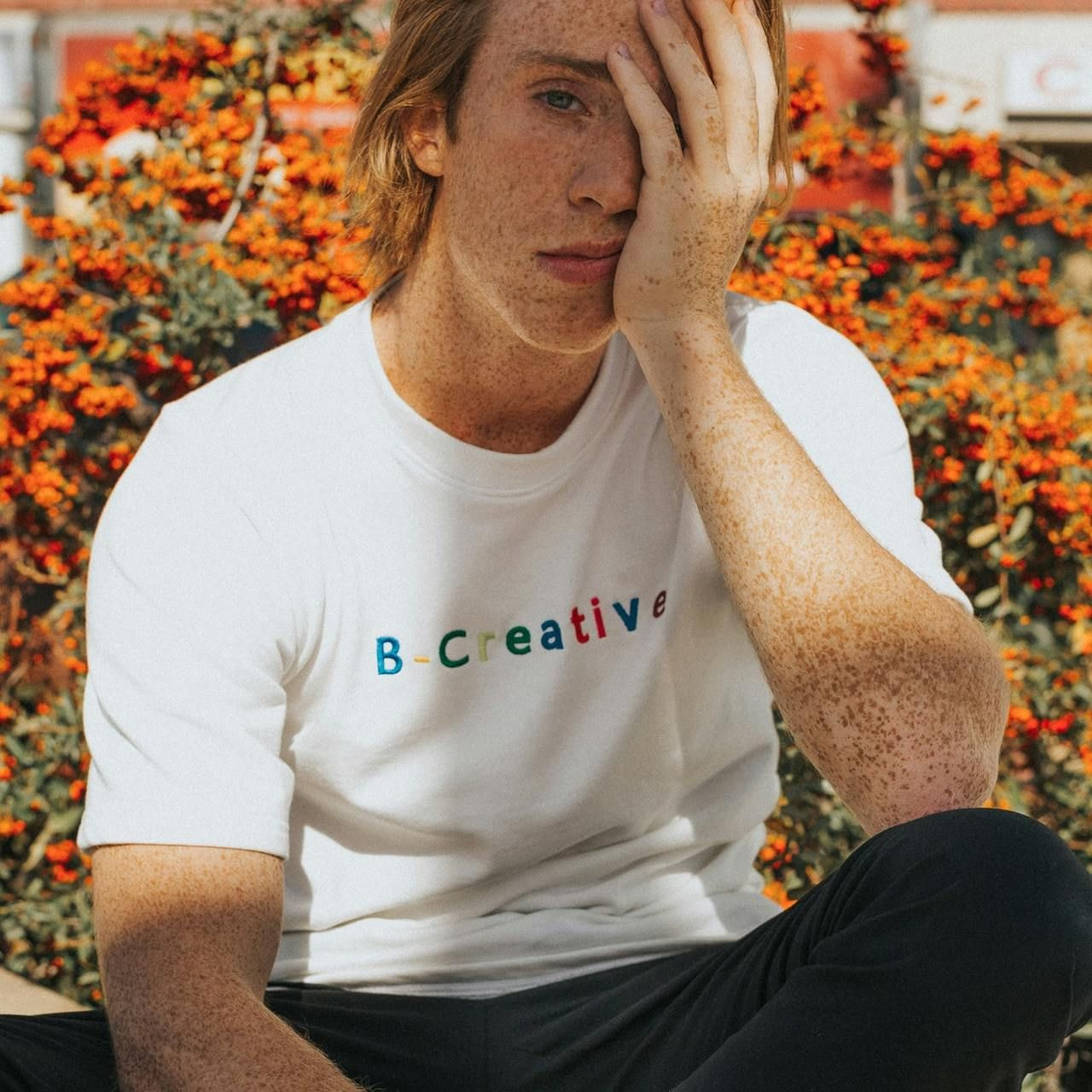
Turning your passion for stitching into a strong source of income is simpler than you think, especially when you use a partner like Printful. We make it easy to offer high‑quality embroidered clothing without buying machines, managing inventory, or handling shipping.
Your designs are made to order, embroidered on beautiful products, and shipped directly to your customers under your brand’s name. That means low upfront costs, no leftover stock, and room to experiment with trends or custom requests.
1. Choose a profitable niche
Zero in on a specific market, like chinchilla owners, roller derby squads, or specialty coffee house employees. Research your target customers, what types of embroidery designs they’d like, and what platforms you should use to market to them.
2. Pick a sales channel
Decide where to sell your products for maximum visibility to your ideal customers. Printful integrates with all the major sales platforms, like Shopify, Etsy, and TikTok Shop, making it easy to manage orders and list products.
3. Create your artwork
Here comes the fun part – making your embroidery designs.
Check out our resources before designing to ensure you get the best results possible:
4. Price for profit
Embroidery is seen as higher value than standard print, so price accordingly. Customers are willing to pay more for something that lasts longer and feels handcrafted, especially if they can add a personal touch with personalization options. We recommend around a 40% profit margin, but in some cases, you can go even higher.
5. Launch, test, and market your products
Start small, gather feedback, and adapt as needed. Use social media polls to choose your next colorway or style, then add new products over time. Since Printful uses print-on-demand, you can test out ideas without investing in a bunch of stock that may not sell.
Watch and learn: How to Sell Custom Embroidered Products Online
Stitch your next chapter
Embroidery is a craft where art meets fabric, offering endless opportunities for personal expression. You now know how embroidery works, the fundamental techniques used both today and in years past, and how to sell embroidered products like home decor, golf shirts, denim jackets, and other clothing.
Ready to stitch your first design? Sign up for Printful and start selling embroidered products today! No inventory, no hefty upfront costs, just creative freedom.
Embroidery FAQ
Sewing joins pieces of fabric to build or repair garments, while embroidery decorates fabric or garments with decorative stitches, such as cross stitch, chain stitch, running stitch, and other techniques.
Embroidery is the artistic expression of applying thread or yarn with a needle to embellish fabric or other materials, often with things like beads, sequins, and other materials. Embroidery techniques can turn fabric into beautiful personalized art, whether it’s golf shirts, denim hats, or other household items.
Yes, the basic techniques like running stitch, blanket stitch, and cross stitch are simple to learn. Step-by-step YouTube tutorials are a great way to pick up embroidery and other textile crafts.

Printful is an on-demand printing and fulfillment service that helps businesses create and ship custom products.





